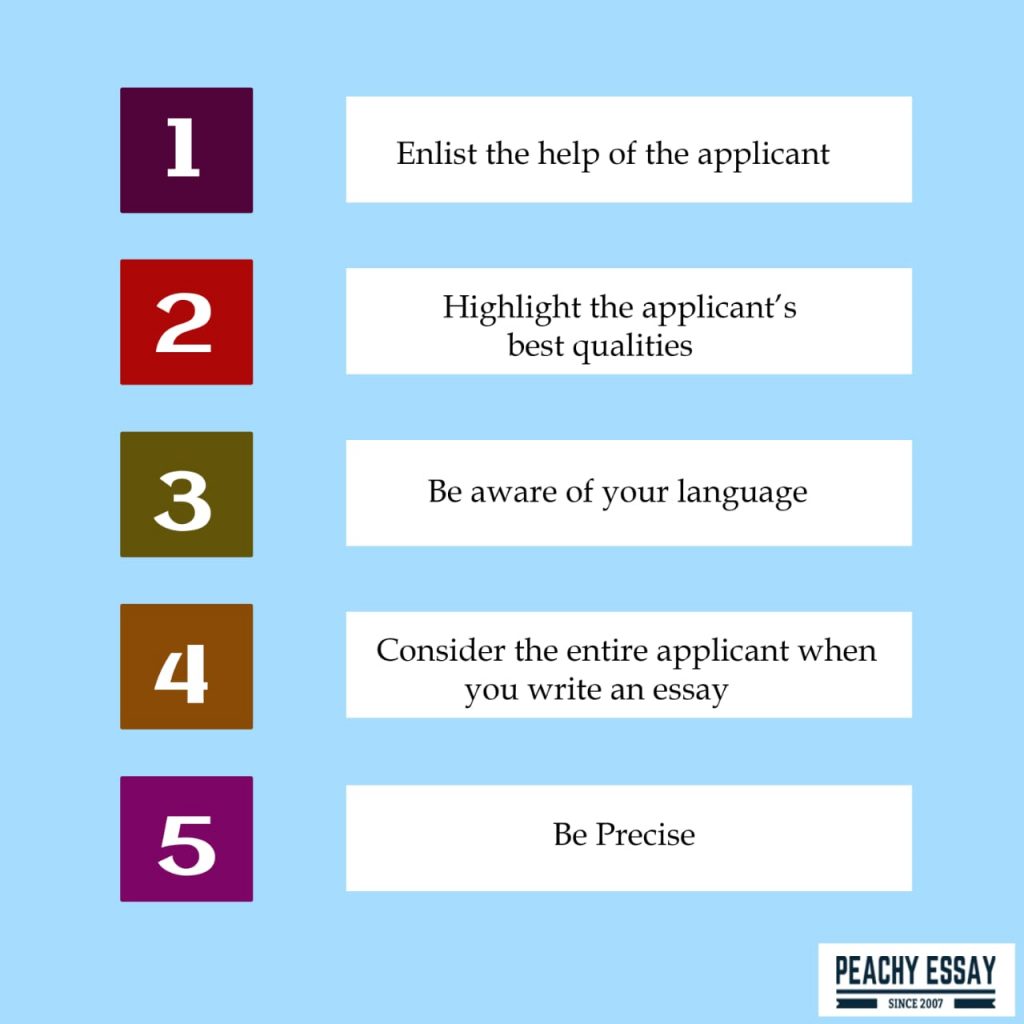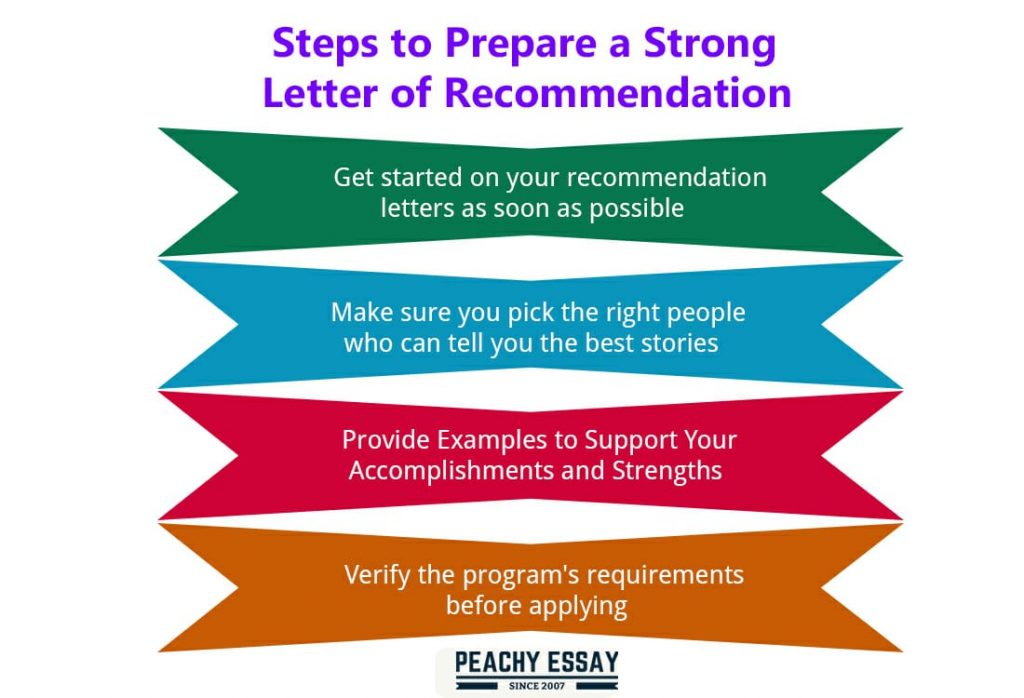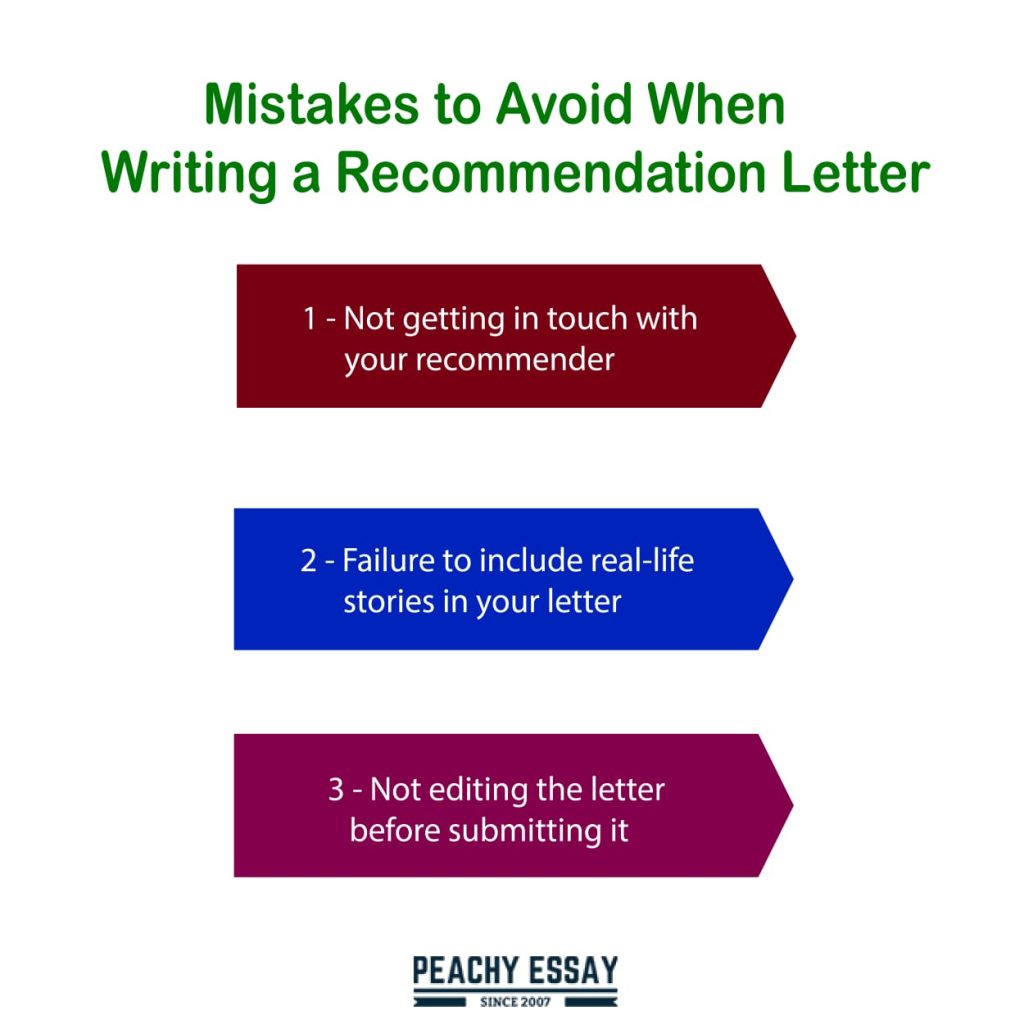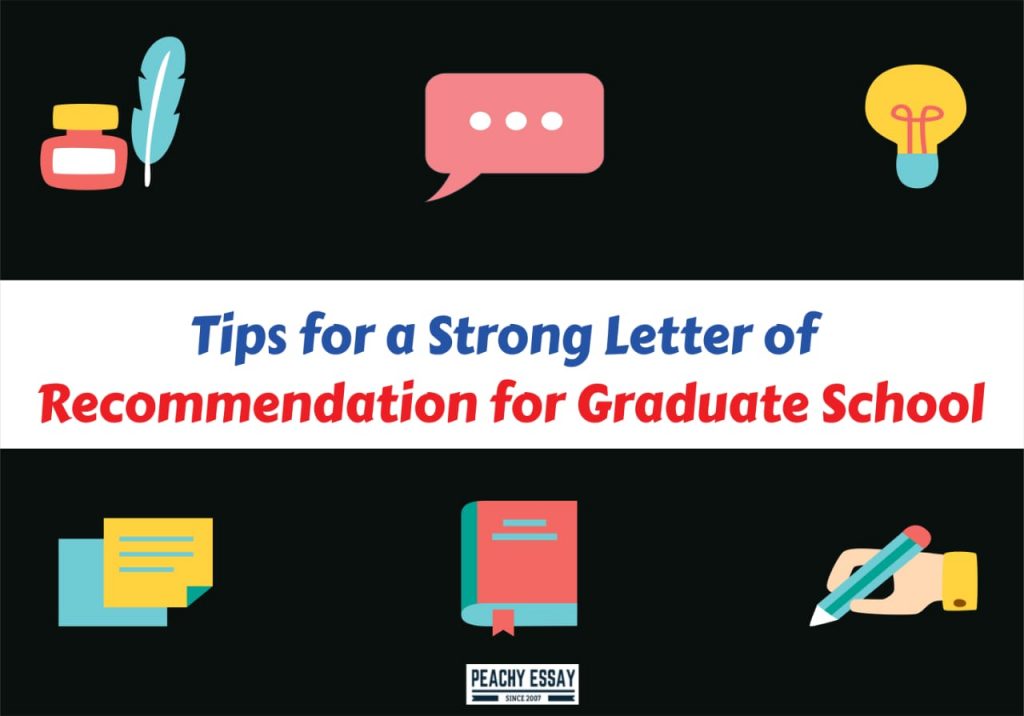Graduate school applications require letters of recommendation just as much as any other. Getting letters of recommendation may not be the most pleasant part of applying to grad school, but it’s still a necessary step. A letter of recommendation can also be a difficult process if you don’t know how to go about it. The purpose of this article is to provide a few tips on how to get your letters of recommendation together for your graduate school applications.
Who Should you Ask for a Letter of Recommendation?
Recommendations must come from people who can honestly describe why you are an excellent candidate for the program. You shouldn’t request a letter from a professor who has never communicated with you, regardless of how well you performed in that class. According to much of the wisdom out there regarding letters of recommendation, a lukewarm letter is just as damaging to your application as an unfavorable one.
People you have built an excellent relationship with will surely write you a letter of recommendation! The potential writer will likely educate you on whether or not they are comfortable with this favor. If, however, there is no direct no, but there is a lot of hesitation, that may also mean that this person is not the right match.
Three letters of recommendation are typically required for graduate program applications. If you are enrolled in college, you will likely receive recommendations from three of your professors. The most suitable professors for your graduate program are those in the field or who have experience in it.
You may not want the professor of the art history class you took as an elective to apply to a master’s program in engineering, regardless of how well they may know you. Although you typically have to acquire three letters, some professors who know you best might come from unrelated fields.
If you need a letter of recommendation from someone in a separate field, if they can describe skills that they believe make you a good candidate for the field you want to get into, that is acceptable. Professors who find it difficult to write letters for you because of their expertise not aligning with your required graduate program will probably tell you the truth. In ideal circumstances, however, you should get letters of recommendation from professors whose fields of focus align with your areas of interest to some degree.
If you are not enrolled in college, your professors may not be the best choice for writing your letters. Those who are currently applying to graduate school may find it beneficial to speak with their professional contacts, such as their boss or a mentor. Having a boss or mentor can certainly provide insight into your work ethic, drive, and other traits that will affect your success. A colleague may be best suited for this role as well. It might also be good to contact a former professor if the relationship was good and ask for a letter of recommendation.
How Should you Ask for a Letter of Recommendation?
You may feel awkward requesting a letter, but remember that everyone has been there! The best way to ensure that you receive a letter promptly is to ask for it immediately. Providing multiple weeks for someone to write a letter is a good idea. A letter should be requested at least one month before the deadline for an application, preferably much earlier. It’s better to get started as early as possible! It is important to express your appreciation and show respect for the individual’s time when asking. The writer of a recommendation letter should provide a personal recommendation, which is a time-consuming and difficult task. It is important to show the letter writer that you appreciate their input and their effort.
It would be best if you asked formally and not informally. To find out if a prospective letter writer is interested in writing for you; your best option is to set up a meeting. A face-to-face meeting may not be possible, given COVID-19. If you think that video chat might be an option, you may still approach your professor about meeting virtually for grad school applications and recommendation letters. Because of the current pandemic, email may also seem like your best option. According to a guide published by Northeastern University, it is possible to ask professors for letters of recommendation via email.
What Should be Included in the Information?
Once your letter writer is on board, part of the next step should be to send them information that will help them put together a good letter. You may be asked for specific materials; however, here is a list of resources you should be ready to send to your letter writer right away:
- List of all graduate programs you currently plan to apply for, along with their application deadline
- Include the courses you have taken with the professor and the grade you have received
- The most recent version of your resume/C.V.
- If you have taken college courses, a transcript detailing your grades and your overall GPA would be helpful.
- Include a cover letter that explains your goals for and after graduate school, including whether or not you would like to work in industry or research.
In addition, you may want to include your personal statement. If your professor is interested in reading it, let him/her know. Despite not being able to do so, they can still draft an appropriate letter with their information. When you have your document written, ask if including it would be useful and send it along.
Finally, it is important to inform the letter writer about how to send their letter. Depending on the school, this may differ. It would be best if you let your letter writer know how to submit applications to your programs, so they don’t have to search for that information.
Usually, you will enter the applicants’ emails on the application site and notify them to submit their letters electronically. A signed and addressed envelope is generally in good taste for any program that still requires postage for a physical copy of a letter. You may want to provide the letter writer with some information about the submission process for each school.
Tips on How to Write a Letter of Recommendation
Use the tips below to ensure your letter is as effective as possible.

Enlist the help of the applicant
Regardless of how well you know the applicant, you’ll need a few details to write the best letter possible. You can ask her for guidance, so don’t be afraid to do so.
Is there a particular reason why she is applying for this program? How does she think the admissions committee will assess her skills and experiences?
Which of her accomplishments is she most proud of? Use her resume and other supporting materials to tailor your letter of recommendation (e.g., if she is applying to a finance program, you may not want to write extensively about her creativity).
Highlight the applicant’s best qualities
Applicants to admissions committees typically receive hundreds (or thousands) of applications for far fewer slots than are available. In addition to minimum requirements such as education and experience, they’re looking for stand-out traits that separate an applicant from the rest.
You can pinpoint these characteristics by reviewing your interactions with the applicant: What standouts to you about their accomplishments? What obstacle did they overcome at work that you saw them overcome, and what was their solution? Can these experiences help them succeed in graduate school? Consider the qualities that make them a great leader or someone who finds creative solutions to problems.
It is vital to provide examples and specific behaviors that support those characteristics. Anecdotes can provide a tremendous advantage in depicting their personality and setting them apart from other applicants. As a recommender, it is your job to bring the applicant to life for someone who doesn’t know them.
Be aware of your language
If you think certain words should be avoided on a resume, it’s also true for recommendation letters. The same blanket terms, such as “hard-working,” “enthusiastic,” or “creative,” do not mean much when applied to all applicants.
Don’t use ambiguous or overly flowery language in your letter. It would be best if you described your candidate in as much detail as possible and always include concrete examples to demonstrate your mentioned traits.
Consider the entire applicant when you write an essay
The committees are looking for people who will round out their incoming class, not simply someone who meets their qualifications.
Thus, as you write, consider how the applicant might contribute to her new class in ways that aren’t obvious from her application materials. What kind of sense of humor does she have? Do you think she is a great listener and a helpful hand is always at hand? The selection committee might better understand her personality by looking at her interests outside of work. Maybe you witnessed her determination after she completed her first marathon.
An applicant’s resume may not include details like these, but they can really help the admissions team envision how she will contribute to the academic community.
Be Precise
Reviewers have limited time to read applications, so keep your recommendation brief-keep it to one page. Make sure you sign the bottom of your letter with your name, current job title, and contact information so admissions officers can follow up with you.
How to Prepare a Strong Letter of Recommendation for a Graduate School
If you are applying to a graduate program, you must prepare a set of documents that include letters of recommendation. A letter of recommendation for graduate school is actually required for your application to be considered. The professor will need to write a recommendation letter for you if you’re applying for an advanced degree. Additionally, if you are applying for the MBA program, you must have letters of recommendation from your manager in the department where you work – so professional recommendations are required.
Here is how to prepare a strong letter of recommendation.

Get started on your recommendation letters as soon as possible
Get started early on your letters of recommendation for graduate school. Applicants to graduate school would be wise to prepare for them well in advance. If you have interacted with someone previously in an academic or professional capacity, ask them to write a recommendation for you. To write good recommendation letters, give the recommenders time to review past performance evaluations and remember all the stories about you.
Also, ensure that your recommender submits the necessary evaluation form and answers the questions presented in the online application you are submitting to the program. Applying to more than one university may result in different requirements.
Make sure you pick the right people who can tell you the best stories
To begin with, you must decide who is going to endorse your application to the graduate program. It is clearly stated in the admission rules that students are not permitted to write recommendation letters or influence those writing them. You need to carefully choose someone with knowledge of your academic or job experience to make sure they can effectively guide you.
The letter writer should focus on the most relevant anecdotes about your achievements and aspirations to give the admissions committee a clearer view of your accomplishments. A graduate school application committee does not look at the credentials of the recommender but rather at real stories about you, information about your work experience, and an honest recommendation letter from a person who is qualified to speak to your suitability for the program.
A bit of expert advice: you shouldn’t care what the recommenders’ titles or statuses are. You should bring recommendations from academically respected professors or CEOs of the company you work for, but what’s most important is choosing someone who knows you personally to write the recommendation. It can be a fellow student, a work associate, or a research advisor with whom you have been interacting regularly and regularly for a long time. A leading client with whom one has had a considerable amount of professional interaction can even be considered for MBA applicants (if applying confidentially).
Provide examples to support your accomplishments and strengths
A recommendation letter should begin by explaining how the recommender knows the student and how you two worked together. Your graduate school recommendation letter should provide context, including the relationship between you and your recommender. Admission officers will also be interested in hearing any unusual circumstances that your recommender has experienced.
Your recommender describes succinctly how well you have performed academically, motivated you, and how well you will fit into the program, you’re applying to. To make your recommendation letter stronger, it is crucial to include real examples of the applicant’s characteristics. The university will desire you more to demonstrate how you have a genuine love of learning, a desire to lead, and the ability to lead successfully.
Verify the program’s requirements before applying
There are different types of recommendation letters for different programs. Whenever you are applying to a school, you should check the admissions section of the website. When you apply to various programs, you should make sure your letter of recommendation will be sent to the appropriate program. Your recommender may be asked to answer specific questions or to rate your research capability, motivation, leadership capabilities, and critical thinking, etc., on the online application.
A typical recommendation letter consists of just two sentences. However, Stanford University allows submitting up to six recommendation letters, but not less than three. In contrast to Harvard University, Berkeley University does not accept letters of recommendation from colleagues since it is inadmissible and detrimental to your application. If the MBA applicant’s current supervisor is no longer recommending him (for example, if he runs his own business or if the family business is his employer), he should explain why the letter comes from someone else.
A Letter of Recommendation General Structure
If possible, the letter should include additional information not included in the resume or personal statement. For this reason, a recommender must write the letter so that the admissions committee can hear the applicant’s story in another person’s voice. Although you may write the letter yourself, the admissions committee will be aware of your writing style since they will know it from your application.
Learning how to write a letter of recommendation for graduate school is best learned by looking at successful recommendation letters that led to the applicant getting into his or her dream school. An excellent recommendation letter must contain the following structure:
In the first paragraph, the recommender needs to describe his relationship with the applicant briefly. It would be best if you described how you and the person have worked together academically or professionally, the length of time you have known each other, and why you can comment on the ability of a person to study at the chosen university.
A recommendation letter demonstrates a person’s skills and personality through examples and explanations. Write down the situations in which an applicant stood out among his classmates and demonstrated his abilities.
The closing paragraph is when the letter writer summarizes how the applicant will fit in at the chosen university. Recommenders should explain to their recommender why they think the applicant is a good fit for the graduate program he is applying for and how he will contribute to the university’s community.
Recommendation Letter Mistakes to Avoid
Here are the mistakes to avoid when writing a recommendation letter.

Not getting in touch with your recommender
The best practice is to meet with your letter writer after deciding who will be writing your letter. You will receive a general and vague recommendation in the absence of communication with the recommender about your academic goals, motivation, ambition, or career goals. Your updated CV or resume should be sent to the recommender if necessary.
Failure to include real-life stories in your letter
The university may ask the recommender about how the applicant copes with failures, setbacks, and difficulties. Therefore, your recommendation letter must show you as a real person, highlight your strengths, and demonstrate that you will grow from your experience at the university. In the admission committee, you will be assessed based on your personality, and you will be deemed to be forty for admission to the university.
Not editing the letter before submitting it
Ensure your graduate school recommendation letter is easily readable and properly structured. Admissions experts know how to write recommendations that will appeal to admissions committees. Editing will eliminate all mistakes that can harm your application.




